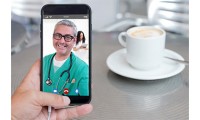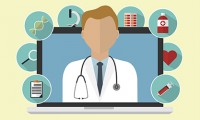-
A Boon to Chronic Disease Patients and Doctors
- Source: The Verdict
- 976
- August 30, 2018
-
Zipnosis Raises $3 Million in Funding for Telemedicine Tools
- Source: MobiHealthNews
- 1,181
- August 30, 2018
-
Use of Digital Health Rises, but Wearables &Telemedicine Falls – Rock Health
- Source: MobiHealthNews
- 1,689
- August 29, 2018
-
NASA Grant Approval for Visualdx to Devise Diagnostic Tool for Astronauts
- Source: MobiHealthNews
- 950
- August 15, 2018
-
Telemedicine Helps Vanderbilt Expand its Transplant Center’s Reach
- Source: mHealth Intelligence
- 1,056
- July 25, 2018
-
US Army Awaiting to Test MEDHUB – A Telemedicine Platform
- Source: mHealth Intelligence
- 1,084
- July 23, 2018
-
Philips Launches First eICU in Japan
- Source: BusinessInsider
- 1,061
- July 5, 2018
-
South Korean KT Crop to Provide Digital Healthcare System in Russia
- Source: Cision
- 902
- June 27, 2018
-
Dentists, Orthodontists to be Encouraged to use Telemedicine
- Source: mHealthIntelligence
- 810
- June 22, 2018
-
Increased Liver Disease Survival Rate by Telementoring
- Source: drugdu
- 904
- June 19, 2018
your submission has already been received.
OK
Subscribe
Please enter a valid Email address!
Submit
The most relevant industry news & insight will be sent to you every two weeks.













